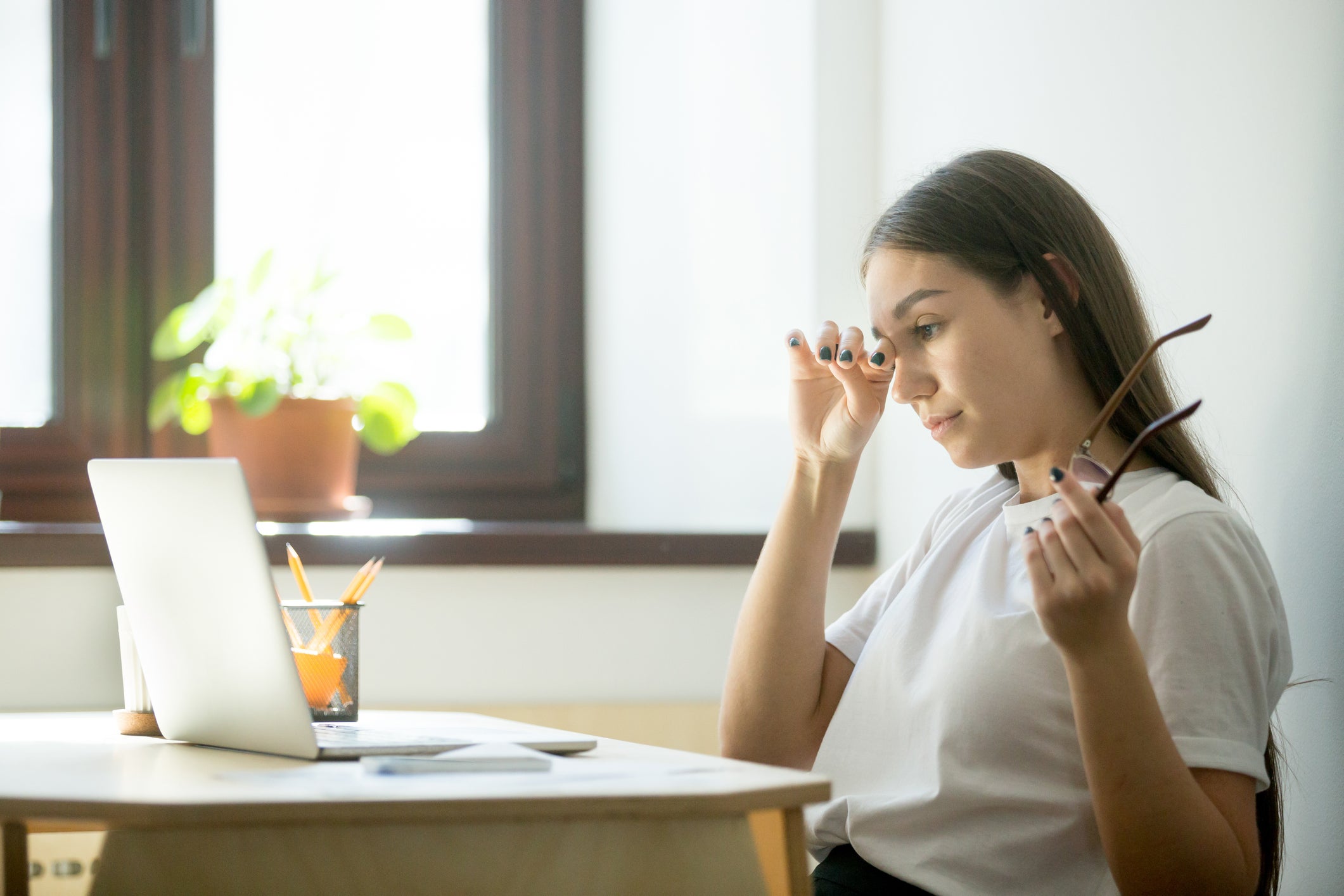Staring at screens could mean half the world needs glasses by 2050
New research suggests problem is ‘escalating quickly’

It’s no secret that spending hours staring at a screen can pose various health risks, particularly where eyesight is concerned.
But a new study has found that extensive screen time could be more serious than previously thought.
Research published in The Lancet Digital Healthjournal has found that excessive time spent looking at a phone or tablet is linked to a 30 per cent higher risk in short-sightedness.
When this is paired with excessive use of a computer, the risk surges to roughly 80 per cent, which the authors say could mean that by 2050, five billion people (approximately half the world) could be short-sighted.
In order to gather their findings, the researchers looked at more than 3,000 studies that analyzed exposure to screens and the impact it had on eye sight.
The research was conducted by eye health experts at Anglia Ruskin University, the Singapore Eye Research Institute, and the Centre for Eye Research Australia.
“Around half the global population is expected to have myopia [short-sightedness] by 2050, so it is a health concern that is escalating quickly. Our study is the most comprehensive yet on this issue and shows a potential link between screen time and myopia in young people,” said study author Professor Rupert Bourne of Anglia Ruskin University.
He went on to explain how the issue might have been exacerbated during the pandemic given how many people, particularly children, were forced to live their lives online.
“This research comes at a time when our children have been spending more time than ever looking at screens for long periods, due to school closures, and it is clear that urgent research is needed to further understand how exposure to digital devices can affect our eyes and vision,” he said.
“We also know that people underestimate their own screen time, so future studies should use objective measures to capture this information.”
The NHS describes short-sightedness, or myopia, as a very common eye condition that causes distant objects to appear blurred, while close objects can be seen clearly.
Approximately one in three people in the UK are thought to be affected by it.
The main treatments are glasses, contact lenses, or laser eye surgery. Read more about myopia here.
Join our commenting forum
Join thought-provoking conversations, follow other Independent readers and see their replies
Comments
Bookmark popover
Removed from bookmarks